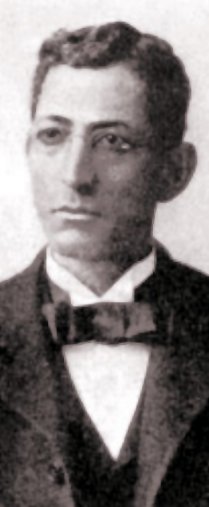Today, sadly, Marianna native T. Thomas Fortune is barely remembered.
He was born Timothy Thomas Fortune in Marianna, in Florida's Jackson County, to a family of slaves on Oct. 3, 1856, the son of carpenter Emanuel Fortune. The young boy's formal education was brief; after Emanuel moved the family to Jacksonville, Thomas attended a school run by the Freedman's Bureau, a reconstruction organization created by Congress to provide services for the South's four million newly-freed slaves.
It was Emanuel who planted the roots of Thomas' activism. Following the Civil War, Emanuel served a term in Florida's House of Representatives, and even managed to get young Thomas hired as a page.
In 1876, Thomas entered Atlanta's Howard University. A year later he married Carrie Smiley of Jacksonville and the two moved to New York, where Fortune took a job as a printer for the New York Sun, one of the city's top dailies. There Fortune caught the eye of editor Charles Dana who promoted him to the editorial staff.
It was the first break in Fortune's rise. The second was his burgeoning friendship with Booker T. Washington. With Washington's financial backing, Fortune founded the New York Globe, a daily newspaper for African-Americans.
Within its pages, Fortune crusaded against segregation, discrimination, and mob violence. In fact, it was Thomas Fortune himself who coined the term African-American, explaining: "We are African in origin, American by birth."
Fortune later sold the Globe and joined the staff of New York Age, another African-American daily. Fortune's influence was at its peak.
From his home in Red Bank, New Jersey, Fortune authored several books, among them Black and White: Land, Labor, and Politics in the South, a condemnation of the post-Civil War South's exploitation of black labor.
In 1890, Fortune organized the Afro-American League, a forerunner of today's NAACP. The tools used by the League to affect social change--legal action, legislation, education--created the blueprint for America's modern civil rights movement.
By the end of the first decade of the 20th Century, however, an irreparable rift tore Fortune and Booker Washington apart. Fortune favored a more pro-active, militant approach to social change and grew restless with Booker's perceived passive acceptance.
Without his mentor's financial backing, Fortune's career floundered and he tumbled into depression and alcoholism from which his reputation never fully recovered. He rallied, however, and managed a final career comeback. In 1923 he joined the staff of Negro World, published by militant activist Marcus Garvey.
Toward the end of his career, Fortune seemed resigned to his lack of recognition. "Along the way I have shaken trees," Fortune wrote, "and others have gathered the fruit." In the study of his Red Bank home Fortune found solace composing poetry. In verse published not long before he died in 1928, Fortune wrote:
When the hills of the north are shrouded in snow,
When the winds of winter their fiercest blow,
Then take me again to the clime of my birth:
Dear Florida--dearest to me on the earth.
Today, the grand two-story home near the Jersey shore, officially designated an historic landmark in 1976, stands as America's lone memorial to Timothy Thomas Fortune, self-made son of Marianna's piney woods and America's most influential, least-remembered civil rights pioneer.

